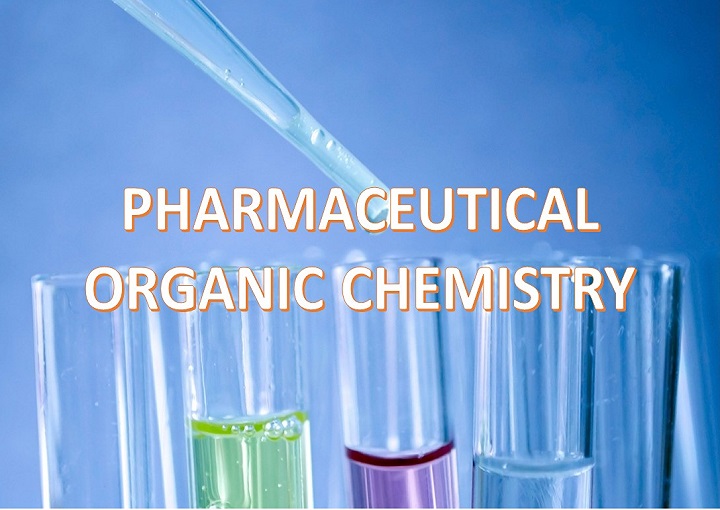Pharmaceutical organic chemistry is a critical field of study that plays a crucial role in the development of effective and safe drugs. Organic chemistry involves the study of the structure, properties, and reactions of carbon-based molecules, which are essential building blocks of life. By applying organic chemistry principles, pharmaceutical chemists can design and synthesize organic compounds that have specific biological activity and therapeutic effects.
In this article, we’ll explore the importance of pharmaceutical organic chemistry in drug development, including the different aspects involved in the synthesis, design, and optimization of organic compounds for pharmaceutical applications.
Synthesis of Organic Compounds in Drug Development:
The synthesis of organic compounds is a crucial aspect of drug development, as it involves the creation of compounds that have specific biological activity and therapeutic effects. This process involves the preparation of complex molecules through a series of chemical reactions, using various synthetic techniques and methods. Some of the key aspects of organic compound synthesis in drug development include:
1. Design and Optimization of Organic Compounds:
The first step in organic compound synthesis is the design and optimization of the compound’s structure, which is based on the target biological activity and therapeutic effect. This involves the use of various computational and experimental techniques to design and optimize the compound’s structure for maximum efficacy and safety.
2. Chemical Synthesis:
The next step is the actual synthesis of the organic compound, which involves the use of various chemical reactions to build the molecule. This process can involve multiple steps, and the selection of appropriate synthetic techniques and methods is critical to the success of the synthesis process.
3. Purification and Characterization:
Once the organic compound has been synthesized, it needs to be purified and characterized to ensure its quality and purity. This involves the use of various analytical techniques, such as chromatography and spectroscopy, to identify and quantify the compound’s structure and purity.
Design of Novel Drugs using Organic Chemistry:
Another critical aspect of pharmaceutical organic chemistry is the design of novel drugs using organic chemistry principles. This involves the identification of new targets and the development of compounds that can modulate these targets to achieve specific therapeutic effects. Some of the key aspects of the design of novel drugs using organic chemistry include:
1. Target Identification and Validation:
The first step in designing novel drugs is the identification and validation of potential drug targets. This involves the use of various techniques, such as high-throughput screening and computational modeling, to identify targets that are relevant to specific diseases or conditions.
2. Hit-to-Lead Optimization:
Once a potential drug target has been identified, the next step is the optimization of compounds that can modulate the target’s activity. This involves the use of various synthetic and computational techniques to optimize the compound’s structure for maximum efficacy and safety.
3. Preclinical and Clinical Development:
After hit-to-lead optimization, the compound undergoes preclinical and clinical development to determine its safety, efficacy, and pharmacokinetic properties. This involves various stages, including animal testing and clinical trials, to ensure that the compound is safe and effective for human use.
Frequently Asked Questions (FAQs):
1. What is pharmaceutical organic chemistry?
Ans. Pharmaceutical organic chemistry is the study of the design, synthesis, and optimization of organic compounds for pharmaceutical applications.
2. Why is pharmaceutical organic chemistry important?
Ans. Pharmaceutical organic chemistry is essential for the development of safe and effective drugs. By designing and synthesizing organic compounds, pharmaceutical chemists can create drugs that have specific biological activity and therapeutic effects.
3. What are some examples of drugs that have been developed using pharmaceutical organic chemistry?
Ans. There are many drugs that have been developed using pharmaceutical organic chemistry, including aspirin, penicillin, statins (cholesterol-lowering drugs), and anti-cancer drugs such as paclitaxel and docetaxel.
4. How do pharmaceutical organic chemists contribute to drug development?
Ans. Pharmaceutical organic chemists contribute to drug development by designing and synthesizing new drug compounds, optimizing their chemical properties (such as solubility and stability), and testing their efficacy and safety.
5. What techniques do pharmaceutical organic chemists use to synthesize new drug compounds?
Ans. Pharmaceutical organic chemists use a variety of techniques to synthesize new drug compounds, including traditional organic synthesis methods (such as reactions between organic reagents and catalysts), biocatalysis (using enzymes to catalyze reactions), and computational methods (using computer models to predict the properties of new compounds).
6. How does pharmaceutical organic chemistry relate to other branches of chemistry?
Ans. Pharmaceutical organic chemistry is closely related to other branches of chemistry, such as medicinal chemistry (which focuses on the design and optimization of drug molecules for therapeutic use), biochemistry (which studies the chemical processes that occur within living organisms), and analytical chemistry (which is involved in the characterization and analysis of drug compounds).

